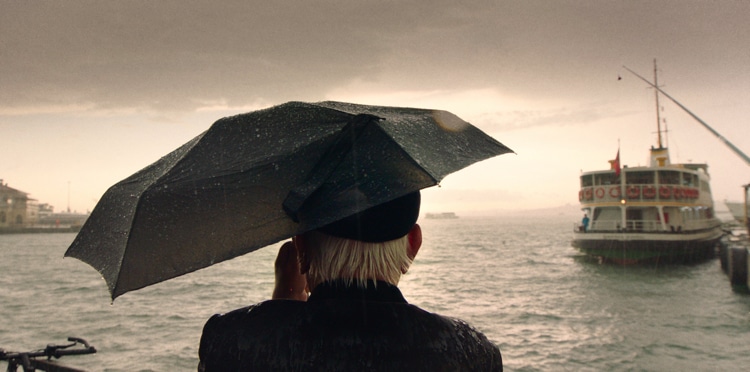




Dir: Asli Ozge | Doc Turkey, Germany, France 97’
Faruk, a man in his 90s, is fighting fit. Turkish filmmaker Asli Ozge artfully captured this snapshot of life for her elderly father in Istanbul, a modern capital in a Western nation, with all the benefits and ills that now entails. Faruk highlights the plight of the elderly – not only in Istanbul but everywhere.
Faruk, straddling two centuries, struggles to make sense of today’s world: A venal place where robbery is commonplace; not just in the street but in the privacy of your own home. Asli shows how a perfect storm of events slowly destabilises her father’s equilibrium as an ageing man with considerable agency, still managing his own life. The film also explores a complex father daughter/relationship that leaves us puzzled, and even dismayed.
In response to the effects of so-called climate change, the council is planning earthquake protection affecting the building where Faruk has continued to live, since the death of his wife, in a pleasant part of Istanbul.
Change comes when it emerges his home is up for demolition, despite a recent refurbishment; one that Faruk has already paid for. The other residents are keen to proceed, so after various meetings, Faruk agrees. But he is disappointed when reviewing the plans: The refurb switches everything round so the ‘French’ balconies are even smaller than before and the safety escape leads down from the master bedroom. More disruption in view for Faruk. Upheaval and life-altering events become more difficult to manage once we get older.
The film paints a dismal picture of modern life in the Turkish capital: like everywhere nowadays petty theft and social incivility seems to be on the increase. During a residents’ meeting his neighbour is called away to be told her husband has died on the metro. And to make matters worse, he was robbed of his wallet and spent the day riding round before anyone raised the alarm. Faruk may be old but he is still capable, although his daughter offers to help him with a ‘power of attorney’. He assures her by agreeing to a medical test. Making his way unassisted, by bus and on foot, he goes to the doctor. In scenes that see him directly facing the camera, he answers the questions correctly. We really feel for Faruk, who is later pictured celebrating the New Year all alone with only champagne for companionship. He does a traditional Turkish dance while a mock-up video shows him dreaming of following a nude dancing girl into his kitchen.
Faruk looks on the bright side even in the face of disillusionment. We see him acquiescing to change, and reflecting on it philosophically. The new flat is drab and pokey, and he argues with his daughter’s cleaner who tries to throw away papers and family treasures in preparation for the move. Then snow arrives and an earthquake near the Aegean. His mobile ‘phone, a vital link to his daughter, then disappears, possibly stolen by door-to-door hawkers asking for charity donations, which he gladly offers. He leaves a ‘phone message to the thieves: his simple plea is heart-breaking; a pitiful reflection on humanity. This is the final straw for Faruk who decides to take a short holiday while his daughter is abroad trying to finance the film.
We later see him back in Istanbul, visiting the new building with a positive mindset for change. His heart sinks when he discovers the reality of his new life. The filmmaker portrays her father as a decent, likeable old-school gentleman but the finale leaves us as confused as Faruk himself. Was Faruk mistaken or did he just have a selective memory of the past? A moving and captivating tribute to a life. @MeredithTaylor
PANORAMA | Berlinale 2024